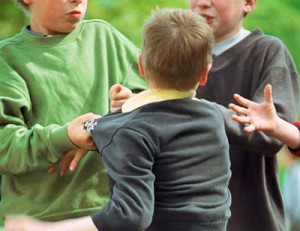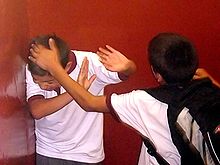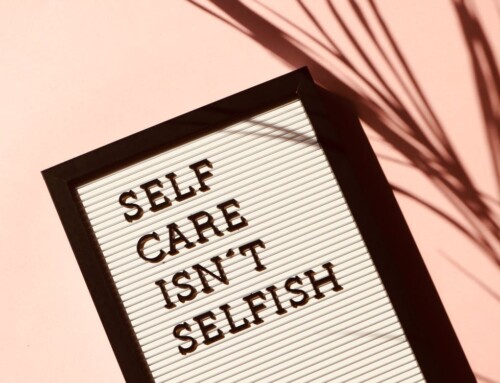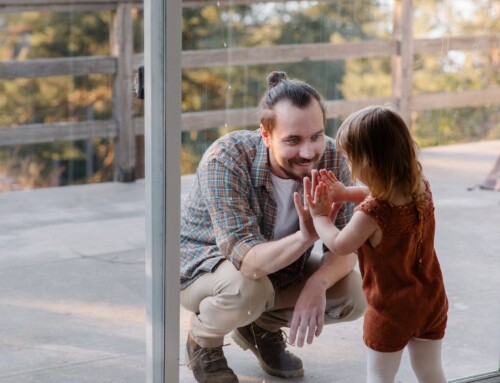Bus Monitor Karen Klein Bullied By Kids | StressLess Bully Tips for Parents
Sixty-eight year old Karen Klein became the talk of the nation…but for the wrong reason. Klein did not become a household name because of desire to become famous, but for being the victim of harsh insults and threats from school bus children. According to reports, the New York bus monitor was bullied by a team of middle-school children and refused to press charges. Police stated that Klein did not want to seek criminal charges against the students of Athena Middle School in Rochester. A video of the bullying incident went viral and revealed a series of verbal attacks toward the grandmother. After viewing the video of the bullying attack, the question was posed if the incident should be treated as a crime.
Fox 35 News Interviews TLC Expert Jada Collins on Bullying Incident
 Crime or not, this is an act of aggression and it is hurtful. So the question is, “What can parents do to learn more about bullying? Education is key. Additionally, it is important to model non-bullying behavior in the home. Oftentimes, bullies are a product of being bullied. Here are reasons why children bully according to Jim West:
Crime or not, this is an act of aggression and it is hurtful. So the question is, “What can parents do to learn more about bullying? Education is key. Additionally, it is important to model non-bullying behavior in the home. Oftentimes, bullies are a product of being bullied. Here are reasons why children bully according to Jim West:
Why do Students Bully?
- Chaotic, out of control, home environment
- Abuse
- Low Self-Confidence
- Poor, inconsistent boundaries at home
- Depressed
- Angry
- No sense of control in their life
Who shows up on the Bullies Radar?![]()
- Poor Self Concept
- Poor Eye Contact
- Reactive with Teasing
- Weak or Frail Appearance
- Depressed
- Hyperactive
- Different
- Developmental Students
- Poor Social Skills
- Poor Boundaries
- Difficulty Fitting In
- Loners
What should parents do if your child is a bully? 
1. Talk with your child. Find out why he or she is bullying others. You might explore how your child is feeling about himself or herself, ask if he or she is being bullied by someone else, and invite discussion about bullying. Find out if your child’s friends are also bullying. Ask how you can help.
2. Confirm that your child’s behavior is bullying and not the result of a disability. Sometimes, children with disabilities bully other children. Other times, children with certain behavioral disorders or limited social skills may act in ways that are mistaken for bullying. Whether the behavior is intentional bullying or is due to a disability, it still needs to be addressed.
3. Teach empathy, respect, and compassion. Children who bully often lack awareness of how others feel. Try to understand your child’s feelings, and help your child appreciate how others feel when they are bullied. Let your child know that everyone has feelings and that feelings matter.
 4. Make your expectations clear. Let your child know that bullying is not okay under any circumstances and that you will not tolerate it. Take immediate action if you learn that he or she is involved in a bullying incident.
4. Make your expectations clear. Let your child know that bullying is not okay under any circumstances and that you will not tolerate it. Take immediate action if you learn that he or she is involved in a bullying incident.
5. Provide clear, consistent consequences for bullying. Be specific about what will happen if the bullying continues. Try to find meaningful consequences, such as loss of privileges or a face-to-face meeting with the child being bullied.
6. Teach by example. Model nonviolent behavior and encourage cooperative, noncompetitive play. Help your child learn different ways to resolve conflict and deal with feelings such as anger, insecurity, or frustration
7. Seek help. Your child’s doctor, teacher, school principal, school social worker, or a psychologist can help you and your child learn how to understand and deal with bullying behavior. Ask if your school offers a bullying prevention program. Bullying hurts everyone. Parents can play a significant role in stopping the behavior, and the rewards will be immeasurable for all.
More Videos on This Topic
NOTE: Freely redistribute this resource, electronically or in print, provided you leave the authors, name, credentials, and contact information below intact and include a link to this article.
AUTHOR: Jada Jackson, MS, LMHC – Communicator, Coach & Licensed Mental Health Counselor working with couples, teens, young adults and women empowerment issues in Orlando and East Orlando Florida! Jada Jackson can be reached at (407) 248-0030.






Leave A Comment